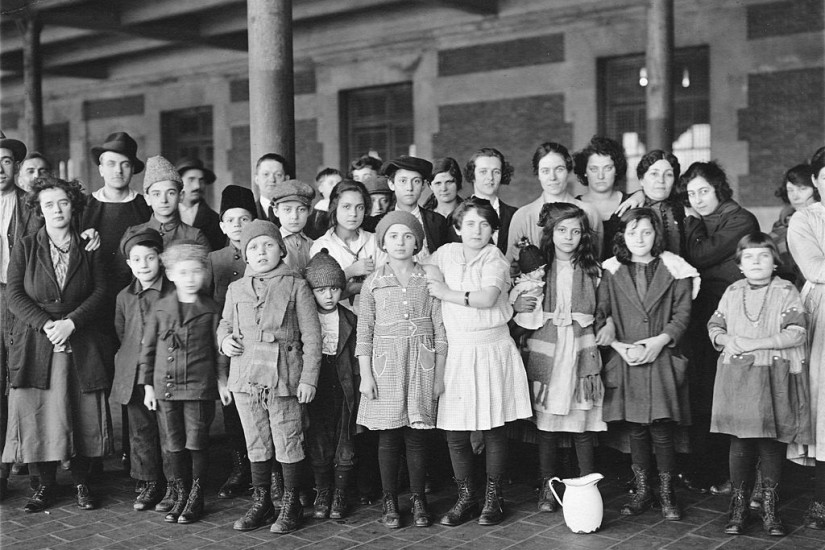Nellie Wilkie first came to the United States from Scotland with her husband and their child in 1886. The immigrant family settled in Plainfield, New Jersey, where she gave birth to their second child. Having become too destitute to support themselves in Plainfield, the family returned to Scotland in August 1889. Within a month of their return to Glasgow, Nellie’s husband deserted her. Believing that her husband went to the United States, Nellie, with their first and American-born second children, took the steamship State of Indiana to cross the Atlantic once again.
Arriving in New York City on September 26, 1889, Nellie went through routine inspection by immigration officials at the Castle Garden landing station in lower Manhattan. Her previous stay in Plainfield did not change her status as an alien passenger who needed to pass entry examination for admission to the United States.
Upon the inspection, the Collector of Customs at the port of New York found that Nellie was “in destitute circumstances.” He then decided to detain Nellie and her children at an immigrant hospital on Ward’s Island on the East River as paupers who would be sent back to Scotland under the federal Immigration Act of 1882.
Nellie Wilkie could have been a simple addition to the list of excluded foreigners, but her American-born child made her case complicated. While denying Nellie and her children admission for the moment, the customs officer was not entirely certain if he could prohibit a native-born American citizen from landing in the United States and send the child to a foreign country. Nellie was an alien pauper who could lawfully be returned to Scotland, but could a citizen of the United States be banished with the immigrant mother? Realizing that the matter belonged to higher authority, the customs officer requested instructions from the Department of the Treasury, which was then charged with supervising issues of immigration to the United States.
In response, the Treasury Department reached a remarkable decision for Nellie Wilkie. In the first place, a native-born citizen could not be sent out of the country. If Nellie had to go back, her exclusion could be done only by “separating it [the citizen child] from its guardian by nature.” But it was not “the intention of Congress to sever the sacred ties existing between parent and child, or forcibly banish and expatriate a native-born child for the reason that its parent is a pauper.” Accordingly, the Treasury Department instructed the customs collector to admit Nellie and her children.
